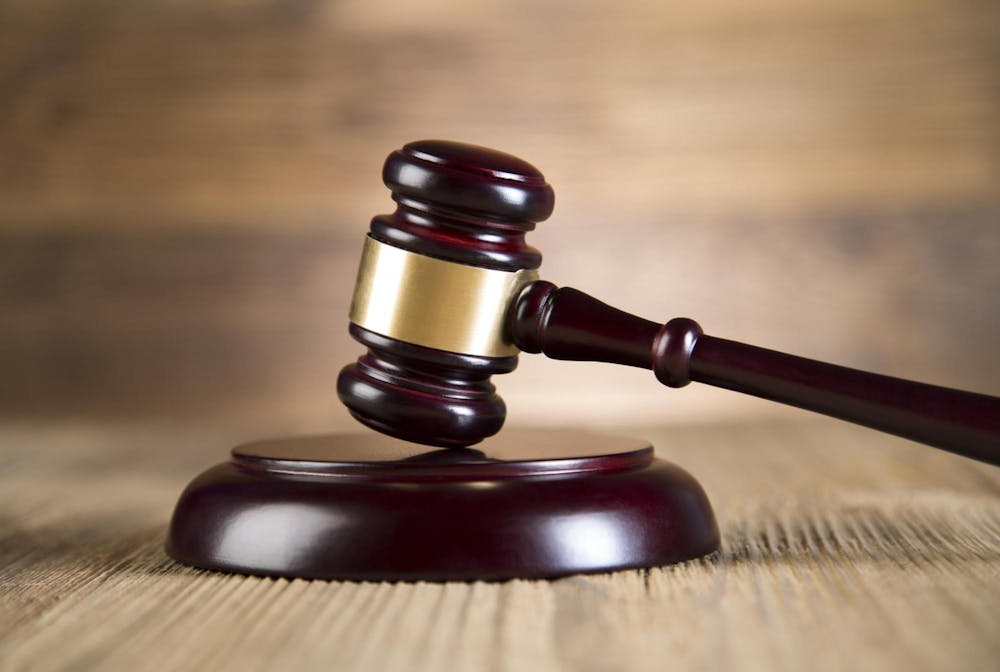What would you think if President Pamela Whitten told this newspaper not to cover the Palestine protests, because the IDS should “protect IU students from harmful misinformation?”
Information should flow freely. That’s why democracies have guarantees of free speech, free press and free assembly. Every person has the right to speak their mind, wherever and however they want. Of course, there are exceptions; we’re not free to tell a crowd to rob a store right this minute (“imminent lawless action,” Brandenburg v. Ohio). But by this standard, we are in fact free to shout “Fire!” in a crowded theater if it does not incite illegal action. We are generally free to insult people, to say offensive things, even to say things that aren’t true. Only in limited cases can speech be restricted, such as, a company lying about its products, or a witness lying during a trial. A person who defames someone else can be subject to a lawsuit. Other than these specific xcases, speech in this country cannot be regulated, censored or controlled.
Why is speech protected so broadly by our Constitution and our courts? It is because without freedom of speech, we don’t have a democracy. If the government says it can stop people from saying things that “aren’t true,” it puts itself in the position of deciding what is true and what is not. A government that can force its “truths” on the people can do anything at all. All our freedoms depend on freedom of speech.
In our times, we hear voices saying that the media are “fake news” and “enemies of the people.” Or that social media platforms should “moderate” their content to prevent the spread of “misinformation.”
All these efforts to control information are dangerous. Who decides what is “fake news”? Who decides what is “misinformation”?
I am a professor in the Media School, and based on my academic expertise I reject the idea that there is a “science” of misinformation. There is research that claims to be able to identify “misinformation” as a separate category from ordinary, run-of-the-mill disputes about what the truth is. But this research is clearly biased. For example, consider the highly influential “Global Disinformation Index.” The GDI claims that it can professionally and fairly separate “reliable” from “unreliable” sources. Advertisers use these distinctions when placing ads. Somehow, the GDI lists left-wing sources such as NPR and HuffPost as “Low Risk” and right-wing sources like Reason and the New York Post as “High Risk.” Clearly, what’s happening is what you would expect: Like all of academia, the “misinformation” sector is dominated by people with left-wing views, and those people believe in HuffPost over the New York Post. And that’s fine; it’s just a blindspot that arises because of the historical left-wing trend in academia. Where it goes wrong is when the “misinformation” experts claim to have no bias, when they claim that their left-wing views are “Truth” itself. When this alleged “Truth” is used to starve other views of advertising revenue and therefore reach – which is what the GDI does – we’re now using the idea of “misinformation” to distort the public’s view of reality.
There are so many examples of so-called “experts” getting it wrong.
In 2020, a group of 51 former intelligence officials said that the release of emails belonging to Hunter Biden may have been an attempt from Russia to influence the election. NPR declared the story was a “waste of time.” The officials were wrong; NPR was wrong. Everything on the laptop turned out to be genuine. The one media outlet that got the story right from the beginning? The New York Post.
In 2021, White House officials told Twitter employees that former New York Times reporter Alex Berenson was spreading COVID-19 misinformation. They urged Twitter to ban him, and Twitter did so, after he tweeted that the shots did not prevent infection or transmission, that they had a “terrible side effect profile,” and that they were more like short-term therapies than vaccines. We can see now that nothing in that Tweet was obviously false; much of it turned out to be true. It certainly wasn’t “disinformation.” The tweet was simply annoying to the White House, so Berenson was silenced.
In June of this year, the New York Times told its readers that videos of President Joe Biden’s declining mental abilities were deceptively edited and lacked context. But the New York Times was itself being deceptive, because a complete contextual rendering of President Biden’s mental state in June 2024 would have clearly shown that his mental abilities were indeed declining. This became evident in the Presidential debate on June 27, where President Biden had a great deal of trouble maintaining his focus and following a train of thought. Guess who urged him to drop out the very next day? A New York Times opinion.
When someone says they are an “expert in misinformation” and tells you to ignore a person, platform or organization, you should definitely go look at it, just because the “expert” doesn’t want you to.
Why are these “experts” telling us to ignore what someone says? Why don’t they trust us to listen to all sides and make a good decision? Do they think we’re so stupid that we can’t tell who is trustworthy and who isn’t? Maybe there are certain things that “experts” just don’t want us to know.
Maybe the “experts” are worried about what The People might do, if they are allowed to read, report and discuss information freely. The “experts” tell us not to trust certain voices, but I think we shouldn’t trust ANYONE who tells us what to read, report or say.
Just in August, the owner of the Telegram social media platform, Pavel Durov, was arrested in France because, the authorities say, he “allowed illicit transactions” on his platform. They also said Telegram refused to share data on its users and their communications. In other words, French authorities are demanding to crawl into Telegram’s back end and hunt for its enemies there. The Twitter/X platform was closed down in Brazil for the same reason; they have only been able to resume service by agreeing to the authorities’ demands. The “expert” Robert Reich is calling on global regulators to arrest Elon Musk, the owner of X. In calling for the arrest of Elon Musk, Mr. Reich argues that he only wants to protect us from harm. That’s interesting. If the information is so harmful, why doesn’t it harm Mr. Reich? And why does Robert Reich get to decide what information is harmful?
Freedom of speech is not a left-right issue. Recent days have seen prominent Democrats call for misinformation control, from Alexandria Ocasio-Cortez to Hillary Clinton to John Kerry. Meanwhile, Donald Trump has demanded that the Federal Communications Commission revoke the license of ABC News.
We are lucky that, here in America, the First Amendment puts a thick layer of protection around speech. Except in cases like provable defamation, immediate danger or lying under oath, Americans can say what they want. Because of the First Amendment, the government is not allowed to stop someone from speaking or posting because the person is spreading “harmful misinformation.” Nor is it allowed to stop the IDS from reporting facts about Israel and Palestine, or students and faculty from speaking up about these matters in campus protests. Why? Because if the government had that power, they would totally control information, and we would never be free again.
Only dictators need censorship.
What can we do?
DO NOT trust anyone who says they are protecting you from “misinformation.”
DO NOT trust anyone who says that certain information is “harmful.”
Say NO to this attack on our rights.
We have the right to the free flow of information. DEFEND YOUR RIGHTS.
Edward Castronova is a professor in the Media School, where he teaches game design and virtual economies.






